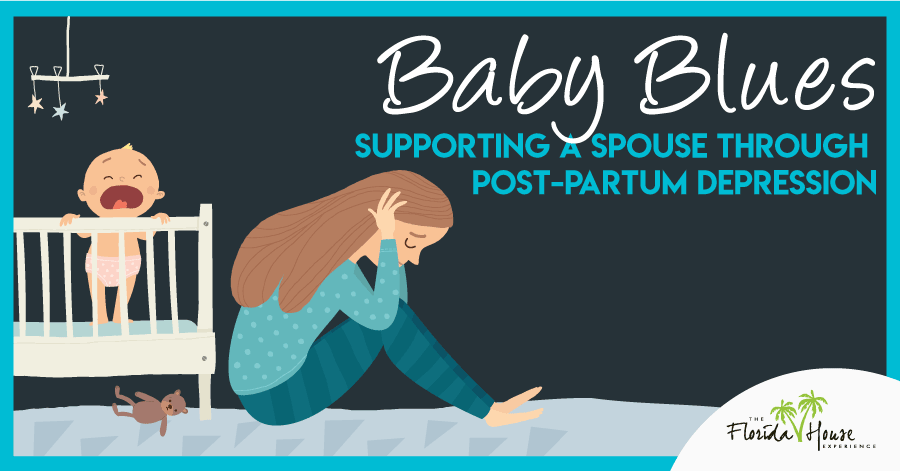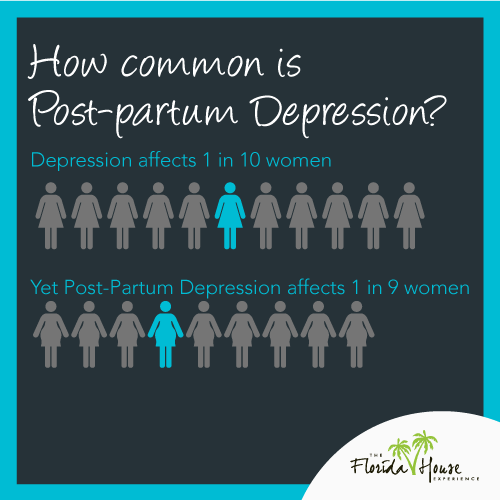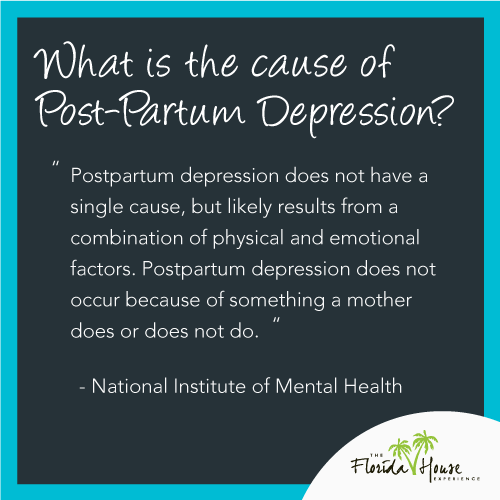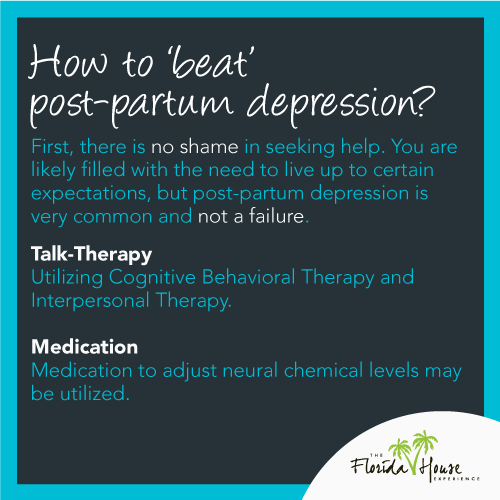
Postpartum depression, or the ‘baby blues’, is a condition that can impact the way a mother feels and handles stress in the months after giving birth. The U.S. Centers for Disease Control and Prevention found that 1 in every 10 women experience the signs of depression overall, but 1 in 9 women experience postpartum depression symptoms.
Depression makes dealing with daily life difficult. It’s more than just being sad. Though most people are able to overcome those initial baby blues, others develop a more serious, chronic or high-risk form of depression that requires treatment. If you feel this way or your spouse does, and it doesn’t go away within a few days, it’s time to seek out help.
At FHE Health, we work closely with mothers who are at high risk for developing this condition or other mental health challenges after giving birth. Contact us for immediate help.
What Are the Risk Factors for Postpartum Depression?
Any woman who has given birth is at high risk for developing postpartum depression. Changes in hormone balances in the weeks after giving birth contribute to this sudden and sometimes drastic change in the way a mother feels. There are other risk factors for depression that are important to understand as well:
- Stressful life events leading up to the pregnancy, during it, or during birth
- A family history of depression
- Previous history of depression
- Young mothers, such as those under the age of 20
- Low social support
- Pre-term labor and delivery
- Birth complications
- Hospitalization after birth
- Multiple-birth mothers such as twins
Depression can occur in any woman, even those who consider themselves well-balanced and healthy.
What Are the Symptoms of Postpartum Depression?
 For a spouse monitoring, a woman who just gave birth, looking for a few key signs of postpartum depression is critical. Most often, these symptoms develop in the first few months after giving birth, but they can occur later on as well.
For a spouse monitoring, a woman who just gave birth, looking for a few key signs of postpartum depression is critical. Most often, these symptoms develop in the first few months after giving birth, but they can occur later on as well.
- Feelings of anger and frustration
- Crying more often than normal
- A feeling of being numb or unable to connect with the baby
- Withdrawing from others or activities once loved
- Feeling guilt and self-doubt, especially as related to the baby
- Worrying that you will hurt the child
As a spouse, monitor the mental health of a loved one carefully for significant mood changes like this. Postpartum depression can occur suddenly.
What Is the Pathology Behind Postpartum Depression – What Causes It?
The National Institute of Mental Health states that there’s not usually a single cause for postpartum depression occurring. Rather, it develops due to a combination of emotional and physical changes. It’s never something the mother does or does not do that brings on these symptoms. It’s not your fault or the fault of your spouse.
Rather, the presence and constant change in the levels of hormones in the body create mood swings. Specifically, estrogen and progesterone levels drop suddenly during those first few weeks. When this occurs, a chemical change occurs in the brain, which can bring on feelings of hopelessness and anger.
While these chemical changes are occurring, many mothers are also facing day-to-day changes. Many get little sleep. Their body is recovering from a significant physical change. The combination of needing to heal and exhaustion can also increase the risk of postpartum depression or intensify the feelings it creates.
What Makes Postpartum Depression Concerning?
 As noted, the baby blues are not uncommon. Many women feel this way for a few days. For those who develop more chronic and intense forms of depression after birth, it’s critical to seek out help. What’s normal and what’s not?
As noted, the baby blues are not uncommon. Many women feel this way for a few days. For those who develop more chronic and intense forms of depression after birth, it’s critical to seek out help. What’s normal and what’s not?
It’s normal to feel:
- Worried
- Anxious
- Unhappy about the changes in day-to-day life
- Fatigued
- Overwhelmed by those changes
The National Institute of Mental Health reports up to 80 percent of women feel this way after giving birth. It shouldn’t last more than a few days to a week before it goes away.
What’s not normal? If your spouse or you feel the following, you may need help:
- Sadness that doesn’t go away
- Anxiety that becomes debilitating and interferes with your ability to care for your child
- A lack of caring for yourself or your other family members
- Feelings about self-harm or harming the child
- Unwillingness to interact with the baby
This typically occurs between the first week to a month after delivery. It may not go away on its own. Some women may develop the condition at that time but not talk about it or receive help. It can be months later that they finally admit there’s a problem.
Should I Tell My Husband I Have Postpartum Depression?
Postpartum depression can put your child at risk. It can interfere with the relationship and bonding you have with your child in the first few months of life. The first step in becoming you again is to open up to someone you can trust and confide in. If you feel your spouse can help you, start talking.
Don’t expect your husband to be able to solve or even understand the way you feel. Rather, he can provide the sounding board you need at this time. Postpartum depression’s severe forms may not be treatable without more advanced care, but the first step is admitting just how overwhelmed, frustrated, anxious, and sad you feel.
How Can You ‘Get Over’ Postpartum Depression?
 When your spouse or a close loved one isn’t available or talking to them doesn’t relieve some of your frustrations, more advanced care is best. Postpartum depression is treatable through therapy in most women who suffer from it.
When your spouse or a close loved one isn’t available or talking to them doesn’t relieve some of your frustrations, more advanced care is best. Postpartum depression is treatable through therapy in most women who suffer from it.
Two types of therapy are commonly used: counseling and talk therapy. You’ll work one-on-one with a mental health provider to discuss what you are feeling and why you think that is. Many women benefit from cognitive behavioral therapy for postpartum depression therapy, which can help you recognize what you are thinking about and change those thought patterns.
Some women need medication for treatment. In some cases, this may include medications that adjust brain chemicals and hormonal imbalances. This can work to reduce the pain and frustration you feel right away. Your doctor will talk to you about this option.
Get Help for Postpartum Depression at FHE Health
Women experiencing postpartum depression can get help and may be able to connect with their children more fully when doing so. At FHE Health, we provide care for mental health disorders, including postpartum depression, that can help you regain control over your life.






